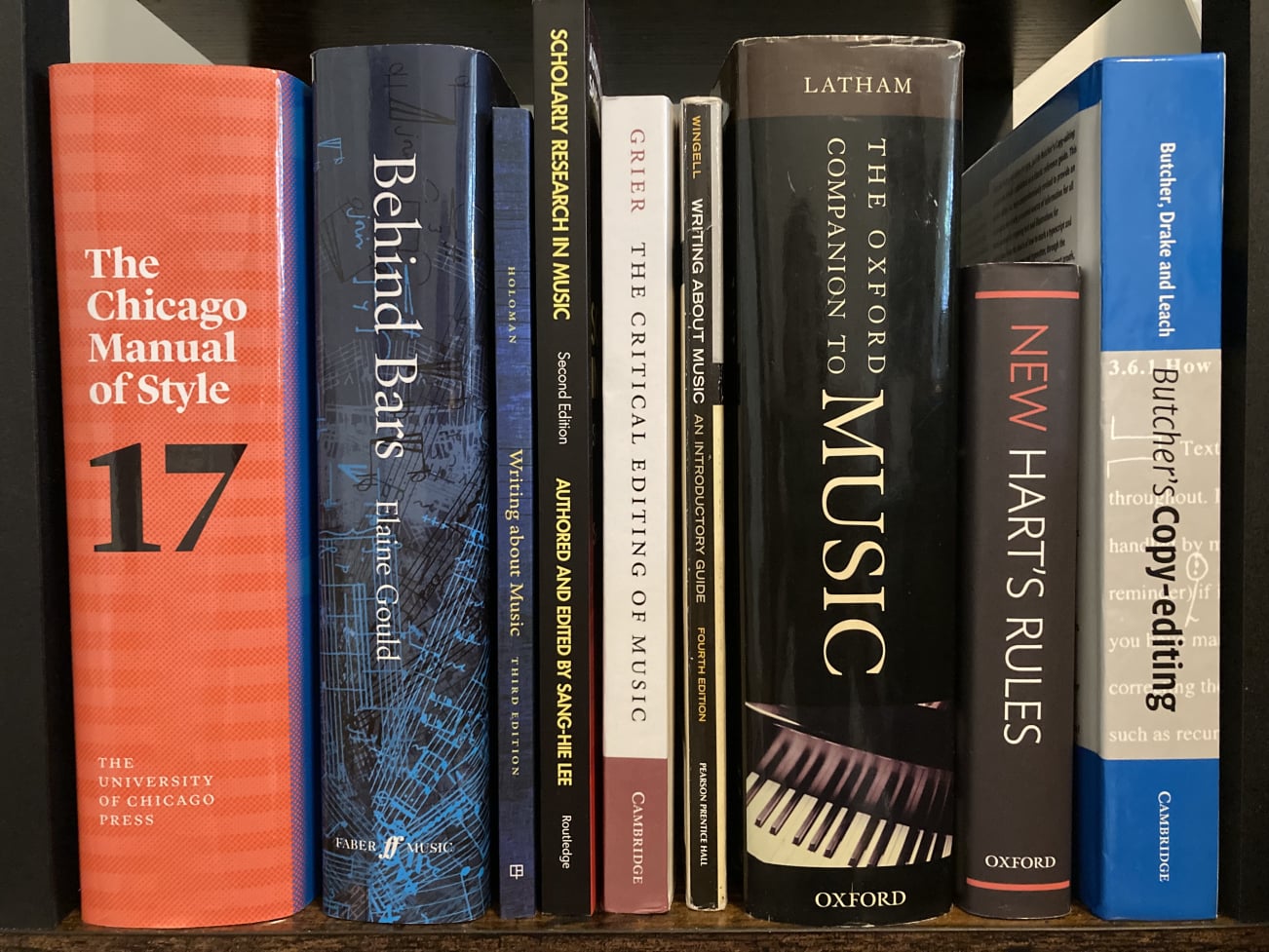Resources
More information about editing and proofreading music can be found from the following resources.
Editing music (American Copy Editors Society, 2019)
A five-part series about editing music that contains loads of useful information based on interviews with a range of editors. If you want to find out more, start with Part I: What it's all about.
Editing and proofreading music (CIEP, 2022)
This guide to editing and proofreading music (including music examples), by FaME member, Fiona Little, is also valuable for authors.
